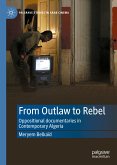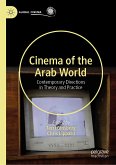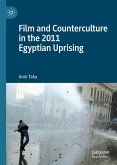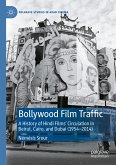'A marvelous and timely book on Morocco's national treasure Farida Benlyazid. An elegant and playful spiral structure accommodates Martin's deep understanding of Benlyazid's many contexts, from the socioeconomic to the spiritual.'
'Florence Martin has achieved an into-depth exploration of a unique and unequalled Moroccan female cineaste-biography. Well-written, nuanced and historically informed.'
---Viola Shafik, Independent scholar and filmmaker, Berlin, Germany and Cairo, Egypt
A pioneer in Moroccan cinema, Farida Benlyazid has been successful at negotiating the sometimes abrupt turns of Morocco's rocky 20th century history: from Morocco under French occupation to the advent of Moroccan independence in 1956; the end of the international status of Tangier, her native city, in 1959; the "years of lead" under the reign of Hassan II; and finally Mohamed VI's current reign since 1999. As a result, she has a long view of Morocco's politics of self-representation as well as of the representation of Moroccan women on screen
----Laura Marks, Simon Fraser University, Canada
'Florence Martin has achieved an into-depth exploration of a unique and unequalled Moroccan female cineaste-biography. Well-written, nuanced and historically informed.'
---Viola Shafik, Independent scholar and filmmaker, Berlin, Germany and Cairo, Egypt
This book project unfolds and analyzes the work of Moroccan director, producer, and scriptwriter Farida Benlyazid, whose career extends from the beginning of cinema in independent Morocco to the present. This study of her work and career provides a unique perspective on an under-represented cinema, the gender politics of cinema in Morocco, and the contribution of Arab women directors to global cinema and to a gendered understanding of Muslim ethics and aesthetics in film.
A pioneer in Moroccan cinema, Farida Benlyazid has been successful at negotiating the sometimes abrupt turns of Morocco's rocky 20th century history: from Morocco under French occupation to the advent of Moroccan independence in 1956; the end of the international status of Tangier, her native city, in 1959; the "years of lead" under the reign of Hassan II; and finally Mohamed VI's current reign since 1999. As a result, she has a long view of Morocco's politics of self-representation as well as of the representation of Moroccan women on screen
Florence Martin is Dean John Blackford Van Meter Professor of French Transnational Studies at Goucher College, USA. She is the author of Screens and Veils: Maghrebi Women's Cinema (2011) and the co-author (with Will Higbee and Jamal Bahmad) of Moroccan Cinema Uncut: Decentred Voices, Transnational Perspectives (2020).
Dieser Download kann aus rechtlichen Gründen nur mit Rechnungsadresse in A, B, BG, CY, CZ, D, DK, EW, E, FIN, F, GR, HR, H, IRL, I, LT, L, LR, M, NL, PL, P, R, S, SLO, SK ausgeliefert werden.
Es gelten unsere Allgemeinen Geschäftsbedingungen: www.buecher.de/agb
Impressum
www.buecher.de ist ein Internetauftritt der buecher.de internetstores GmbH
Geschäftsführung: Monica Sawhney | Roland Kölbl | Günter Hilger
Sitz der Gesellschaft: Batheyer Straße 115 - 117, 58099 Hagen
Postanschrift: Bürgermeister-Wegele-Str. 12, 86167 Augsburg
Amtsgericht Hagen HRB 13257
Steuernummer: 321/5800/1497
USt-IdNr: DE450055826
Bitte wählen Sie Ihr Anliegen aus.
Rechnungen
Retourenschein anfordern
Bestellstatus
Storno









